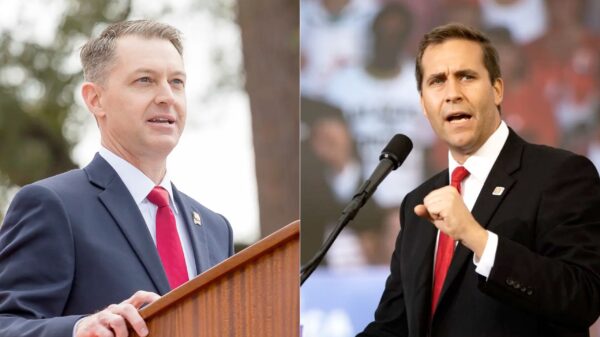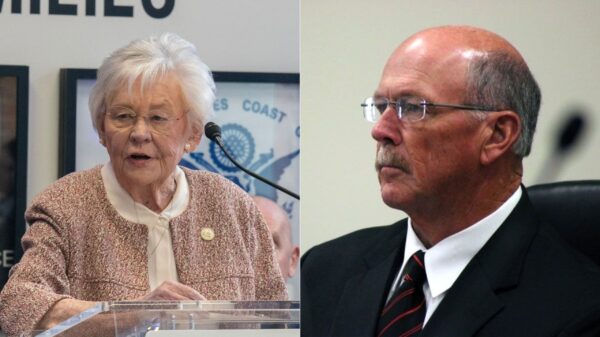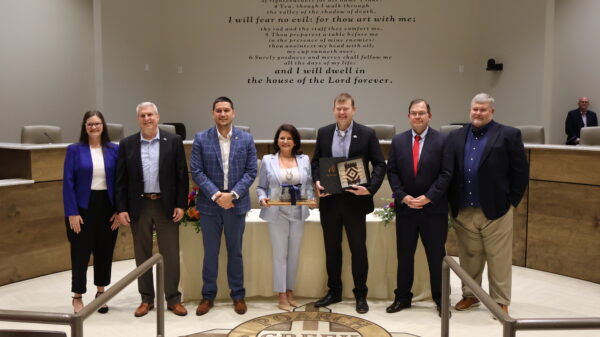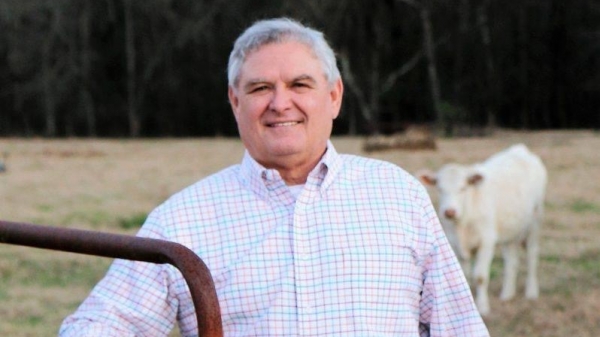Monday Alabama Governor Kay Ivey (R) reported progress on her Strong Start, Strong Finish (SSSF) education initiative that she announced on July 26, 2017.
Governor Ivey launched Strong Start, Strong Finish to integrate Alabama’s early childhood education, K-12 education and workforce development efforts into a seamless educational journey. SSSF is composed of three major strategies: Pre through Three; Computer Science for Alabama (CS4AL); and Advanced Training, Better Jobs.
The Pre through Three initiative focuses on ensuring the Alabama First Class Pre-K program is available to all families who choose to participate and ensuring that all of Alabama’s third graders are proficient readers by 2022.
CS4AL will ensure that a computer science course is offered at all of Alabama’s middle and high schools by 2022.
Advanced Training, Better Jobs will prepare 500,000 more Alabamians to enter the workforce with high-quality postsecondary degrees, certificates or credentials by 2025.
Over the past year, Governor Ivey has secured progress toward each of her ambitious SSSF goals in the following ways.
Governor Ivey reports that under her leadership, investment in First Class Pre-K has grown in one year from $77.5 to $96 million. The $18.5 million increase in 2018 was the largest ever single-year increase in program funding approved by the Legislature.
Jn the 2018-2019 school year, First Class Pre-K will officially break the 1,000 classroom mark for the first time with 1,040 classrooms serving 18,720 four-year-olds, which will reach 35 percent of the eligible four-year-old population.
In December 2017, Governor Ivey announced that Alabama received a $1.5 million grant from the W.K. Kellogg Foundation to support the launch of the Pre-K-3rd Grade Integrated Approach to Early Learning pilot program (“P-3”), starting with 35 classrooms in 2017-2018. The program will grow to 75 classrooms in the upcoming 2018-2019 school year.
Gov. Ivey empaneled a diverse, 100-member Executive Team to assist in establishing 11 regional councils that will recruit a host of local campaigns for grade-level reading. The Executive Team met for the first time in June 2018, and the team will begin establishing the regional councils and recruiting local campaigns during the fall of 2018.
During the 2018 Legislative Session, Ivey secured a $4 million increase for the Alabama Reading Initiative (ARI), which will be used to refocus ARI on grades K-3 and to reinforce the gains produced by the First Class Pre-K program.
During the summer of 2018, Ivey established the Alabama Summer Achievement Program (ASAP) for students who are reading below grade level proficiency in grades 1, 2, and 3. Governor Ivey created an ASAP pilot program at four elementary schools in Montgomery County, serving hundreds of children, with plans for expansion in the summer of 2019.
In 2016, only 86 schools in Alabama offered a high-quality computer science course. Today, more than 175 Alabama high schools offer such classes. In September 2017, Governor Ivey established the Governor’s Advisory Council for Computer Science Education.
In March 2018, Governor Ivey and the Alabama State Board of Education approved the Alabama Digital Literacy and Computer Science Course of Study and Standards. Currently, only 10 other states in the nation have computer science standards.
Gov. Ivey also worked to secure $300,000 for computer science professional development for middle and high school teachers, during the 2018 Legislative Session.
On April 2, 2018, Governor Ivey championed and signed legislation creating the Alabama School of Cyber Technology and Engineering.
Based in Huntsville and scheduled to open during the fall of 2020, the school will be a destination magnet school that will also serve as the hub for computer science professional development in Alabama.
On April 30, 2018, the Attainment Committee issued the Success Plus Plan for post-secondary attainment. Based on those recommendations, Governor Ivey set the statewide post-secondary attainment goal of adding 500,000 highly-skilled Alabamians to the workforce by 2025.
To achieve that goal, and in light of the recent reauthorization by Congress of the Carl D. Perkins Career and Technical Education Act, Governor Ivey is working to increase the efficiency of our workforce development programs to meet Alabama’s growing economic demands and to incentivize more private-sector partners to offer apprenticeships.
The Jobs for Alabama’s Graduates (JAG) program has grown from 23 to 29 programs in 2018 alone. Ivey worked to secure a $250,000 increase in the state appropriation for JAG, which provided funds for four new programs in Tuscaloosa, Morgan County, Madison County and Wilcox County. Governor Ivey also utilized federal Workforce Innovation and Opportunity Act (WIOA) monies to establish two additional JAG programs in Geneva County and Montgomery County.
Governor Ivey said that she is happy with the progress thus far, but plans to further work toward these goals and continue to strive for improvement in Alabama’s education system.
Gov. Ivey inherited one of the worst educational systems in the country. Gov. Robert Bentley (R) admitted to the state’s economic development association that: “Our schools suck.” But struggled to roll out a plan to change that. Ivey is a former educator who has worked in the classroom.
Upon being elevated to Governor on April 2017, Ivey has prioritized improving education in the state and upgrading the state’s workforce development.
















































